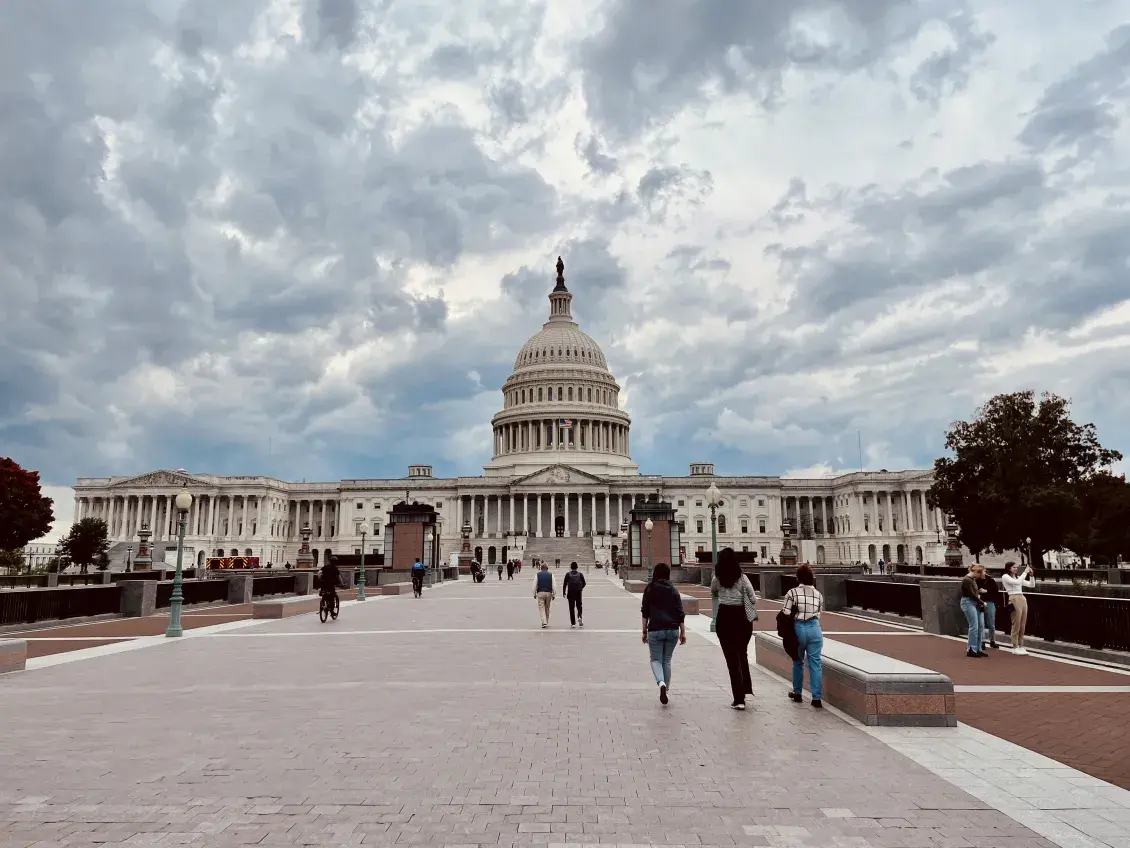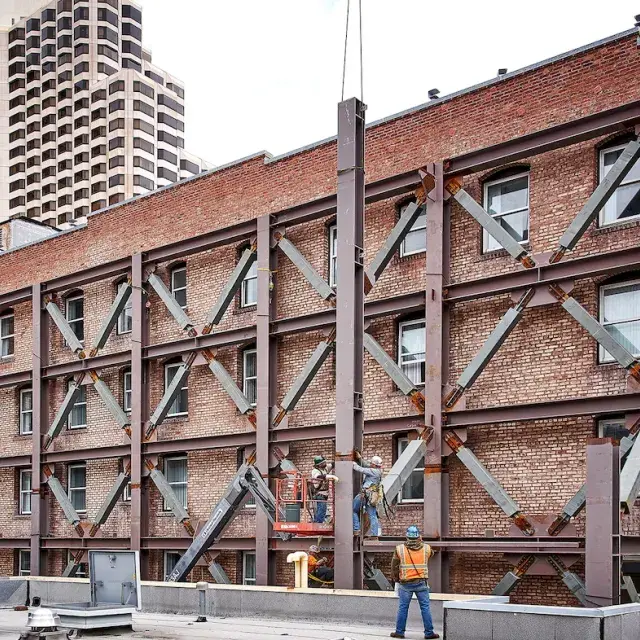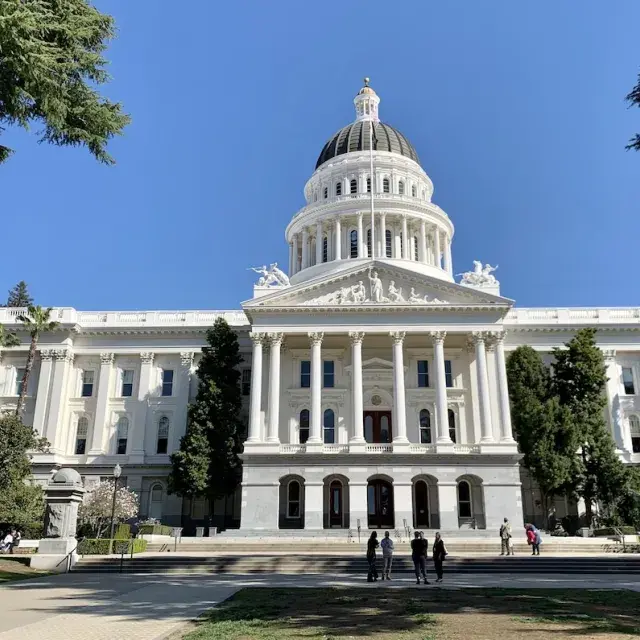President Trump started his second term with a barrage of Executive Orders and a meeting with House and Senate Republican leadership to devise their legislative strategy for the first 100 days of his Administration. Among the top priorities is dealing with the expiration of the President’s hallmark tax law passed in 2017, the Tax Cuts and Jobs Act (TCJA). The expiration provides a once-in-a-decade opportunity to move major tax legislation, dubbed the “the Super Bowl of tax” in Washington circles.
The expiration and subsequent tax negotiations provide housing and community development advocates with a lever to advance key priorities like expanding the Low-Income Housing Tax Credit (Housing Credit), making the New Markets Tax Credit (NMTC) permanent, and enacting the Neighborhood Homes Investment Act (NHIA), as well as to make improvements to the Opportunity Zones incentive that was established in the 2017 legislation. However, with the cost of just extending the TCJA ringing in at $4.6 trillion, passing any tax legislation is going to be a massive lift.
The Reconciliation Process
With control of both chambers of Congress and the White House, Republicans are planning to use a legislative process called “budget reconciliation” to advance their tax priorities. Reconciliation allows for expedited legislative action by limiting Senate debate and effectively bypassing the filibuster. This process only requires a simple majority for passage in both chambers, minimizing the need for bipartisan support.
To initiate reconciliation, both chambers must first pass identical budget resolutions detailing their proposed federal budgets. Each budget reconciliation process can result in three reconciliation bills, requiring careful prioritization of legislative goals. In addition, reconciliation bills must only consider revenue (tax), spending, or the debt limit, and this type of legislation is subject to the Byrd Rule. The Byrd Rule prevents “extraneous” provisions unrelated to budget concerns. Disputes over these provisions are resolved by the Senate parliamentarian, which is a nonpartisan position, who will dismiss them if they are extraneous.
Despite Republicans having a trifecta, reconciliation is no easy task. The slim Republican majorities—53-47 in the Senate and 218-215 in the House—requires near-total party unity. The House majority will soon narrow to 217-215 following the likely resignation of Rep. Elise Stefanik (R-NY-21), who will take a position in the Administration, and pending special elections to replace her and Reps. Michael Waltz (R-FL-06) and Matt Gaetz (R-FL-01). The latter two are scheduled for April 1. If House Republicans bring a reconciliation bill forward before the seats are filled, they cannot lose a single vote on the bill—as there is no tie-breaker in the House and the measure would fail.
An Opportunity for Housing and Community Development Advocates
Housing took center stage in the presidential election and in many of the House and Senate elections, as both Republicans and Democrats recognized the significant housing shortage across the country. Enterprise is advocating for several key housing policies to be included in the tax package:
- Provisions to expand and strengthen the Housing Credit, which has become the primary vehicle for financing affordable rental housing since its inception in 1986. The bipartisan, bicameral Affordable Housing Credit Improvement Act (AHCIA) received widespread support in the last Congress with 309 cosponsors across the House and Senate. Notably, the AHCIA was by far the most cosponsored tax bill in the House last Congress.
- A permanent extension to the NMTC, which drives capital to distressed communities, revitalizing local economies, growing business and community services, and creating over one million jobs. The NMTC is set to expire at the end of 2025, and the bipartisan, bicameral New Markets Tax Credit Extension Act was reintroduced recently.
Budget reconciliation can also be used to improve the Opportunity Zones (OZs), which was enacted in TCJA and is set to expire in 2026. OZs are a top priority for Senate Banking, Housing, and Urban Affairs Committee Chair and Senate Finance Committee member Tim Scott (R-SC), and President Trump has frequently pointed to the incentive as a key victory he achieved during his first term. OZs are expected to be expanded in the upcoming tax package.
Enterprise worked with Congress on bipartisan legislation in the 116th Congress after the establishment of the OZ incentive to add reporting and transparency requirements. Enterprise supports similar proposed changes outlined in the Opportunity Zones Transparency, Extension, and Improvement Act. As it currently operates, the OZ incentive does not work well to finance affordable housing, but advocates are exploring ways to modify the program to make it more feasible and make it pair more effectively with the Housing Credit and the NMTC, support Community Development Financial Institutions, and reach communities with deeper distress.
Anticipated Timeline—One Bill, or Two?
The answer depends on which chamber you ask. House Republican leadership is working to advance “one big, beautiful bill,” to quickly advance President Trump’s policy agenda. Speaker Johnson has yet to bring their budget resolution to the floor for a vote due to razor thin margins and over a dozen holdouts. The Senate adopted their budget resolution in a party line vote of 52-48 in the early morning hours on February 21, which puts them ahead in the reconciliation race. Does that mean it’s full steam ahead on a two-bill strategy, addressing immigration and energy policy first, followed by a second bill tackling tax policy? Not quite. The day before the Senate was set to vote on their chamber’s budget resolution, setting their two-bill strategy in motion, the President surprised Senate leadership when he gave an emphatic endorsement of the House’s “big, beautiful bill.”
Speaker Johnson has publicly noted that the House will not vote on the Senate bill and the President’s endorsement seems to flip the coin in their favor. While this scenario could result in a more direct path forward for tax, the House will need to move quickly next week to catch up with the upper chamber. In the meantime, Senate leadership plans to keep moving ahead with their two-bill process, just in case the House’s strategy fails.
While the path to the Tax Super Bowl is not set, it is clear the time is now for advocates to ask their legislators to prioritize affordable housing tax legislation in the reconciliation process. Enterprise is working closely with Congress to urge inclusion of these critical affordable housing and community development priorities. Be sure to sign up for Enterprise’s Capitol Express newsletter and join the ACTION Campaign to stay up to date on Housing Credit advocacy.
We must seize this once-in-a-decade opportunity to address our affordable housing shortage and drive investment and jobs to economically distressed rural, suburban, and urban communities.



